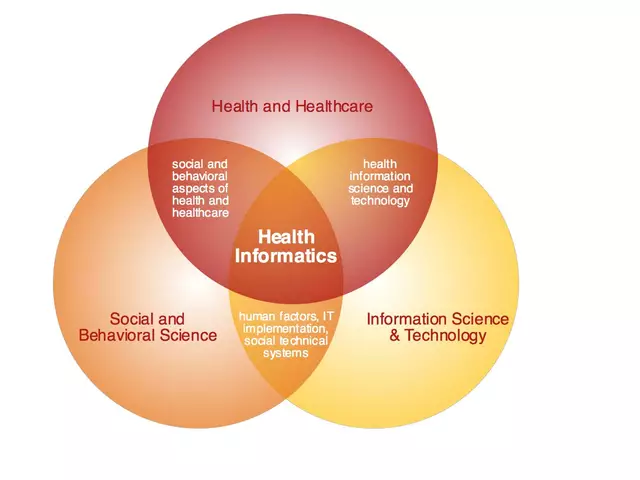Is health care for all really socialism?

- Kieran Fitzpatrick
- 30 July 2023
- 0 Comments
Scrutinizing the Concept of Health Care for All
If you haven't noticed, there's a growing chorus of voices clamoring for 'Health Care for All'. This rhetoric has me thinking – and probably you too – is this really a stepping stone to socialism? Just the other night, my spouse Lana and I were locked in a spirited debate on this very topic. She, a staunch advocate for healthcare equity, and I, ever the skeptical analyst.
Rapid digressions and unsolicited epiphanies later, we both agreed that while 'Health Care for All' sounds suspiciously socialistic, it may be worth exploring in detail. And so, in this article, I intend to do just that. Because anything worth debating over dinner is definitely worth a 2000-word investigation.
Understanding Socialism
Before we dive headfirst into discussions about health care, we first need to understand socialism fundamentally. Imagine a teacher allocating equal time for all students in a classroom, regardless of their academic prowess. That's basically socialism in a nutshell - equal distribution of resources and wealth among all members of society.
Now, this isn't me casually dropping Marxian ideologies during dinner discussions. But isn’t it crucial that we appreciate the backdrop against which ‘Health Care for All’ is proposed? After all, isn't it our responsibility as conscientious netizens to analyze “big ideas” at face value and beyond?
Sifting through Democratic Socialism
Now, in our dinner debates, Lana threw back a noteworthy curveball – democratic socialism. It’s intriguing because democratic socialism isn’t the same as traditional socialism. It supports social ownership of resources, coupled with a democratic political system. It’s more focused on providing basic needs like education, health care, and shelter to everyone in society.
But is this socialism in disguise? Or is it just fair, equitable governance? Like I said, a spirited debate indeed.
Decoding 'Health Care for All'
The fundamental concept behind 'Health Care for All' is inherently simple. It proposes that no individual should be denied medical treatment due to financial constraints. The intent is to ensure the equal health rights of every citizen, whether they have money to afford it or not. So, it doesn't matter if you're Bill Gates or a janitor at Microsoft, health care is a right, not a privilege!
That said, let's delve into the implications of such a system on our society and economy.
The Economic Ramifications
Health Care for All is no small feat. It inevitably brings about swathes of economical implications. The most glaring one is the strain on the budget. Allocating an equal amount of health resources for every citizen could potentially lead to considerable economic stress, contributing to increased national debt and taxes.
While the proponents of this system argue that the short-term financial burden may lead to long-term social and economic benefits, the critics highlight its potential to limit innovation and competition in the health sector. This debate needs more than a dinner discussion or an article, for that matter.
The Domino Effect on Quality of Care
If the government starts busting out those health care checks for everyone, won’t it impact the quality of service provided? After all, if the resources are spread thin to cover everyone, it might affect the level of health care individuals receive. Furthermore, there could be potential waiting periods for treatments or limits to treatment options.
It's essential to consider this domino effect because a universal health care system significantly alters the healthcare landscape.
Are we Tiptoeing towards Socialism?
This is the crux of our article, isn't it? It's interesting how quickly 'Health Care for All' sparks debates around socialism. But is it the bogeyman we've conjured up, or does it indeed contain elements of socialism?
On one hand, the principle of equal health resources for every citizen resonates with the socialist ideologies of equal distribution of wealth and resources. On the other, it could be viewed merely as a commitment to social justice and human rights. Oh, how intertwined and complex these threads of socio-economic concepts can be!
The Personal Viewpoint: An Anecdote
If you are wondering about real-life implications, let me share an incident with you. A few years back, a dear friend of mine suffered a severe injury that required immediate surgery. However, with no health insurance and a meager income, my friend was left helpless. Luckily, after a stringent battle, he was entitled to a government-supported medical aid.
On reflection, this incident made me realize the importance of a system that ensures critical health services are accessible to all, regardless of their financial standing. Undoubtedly, it's not without potential complications and is a bit like opening Pandora's Box. But, isn't it also a step towards an empathetic, caring society?
Wrapping Up: The Final Take
As the last pieces of bread were devoured, and Lana and I settled into a comfortable silence, a thought lingered. Our views may differ, the debates may continue, but we can't ignore the reality – 'Health Care for All' may hint towards socialism, but isn't that a small price to pay for creating a society where no one has to play Russian Roulette with their health?
Perhaps the answer is striking a balance between socialism and capitalism, akin to democratic socialism. But, that’s a chat for another meal, another night, and definitely another article.


